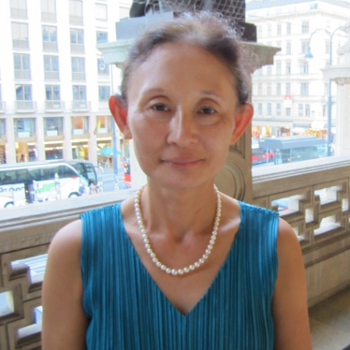Puccini’s final opera Turandot, a fairy tale set in the China of some mystical past, returned to the Met with a strong ensemble of singers. Despite their best efforts and exemplary playing by the Met orchestra conducted by Carlo Rizzi, who led with both vigor and sensitivity, it did not quite add up to one of the unforgettable evenings at the opera. The popular long-running production often interfered with, rather than enhanced, the musical performances.
The night was memorable for a different reason. Bass James Morris, singing Timur, the exiled father of the opera’s hero Prince Calaf, Timur, was honored on his 1000th performance on stage after Act 1. This public display of respect for a veteran singer who has given much to the Met over 40 years is a great tradition that should warm the hearts of the audience, young and old.
Franco Zeffirelli's extravagant production premiered in 1987, about a decade after Morris’s Met career began. Its grand, busy and colorful sets and costumes are crowd-pleasing. The sight of the Imperial Palace in silvery blue hue flanked by gold roofs and poles in Act 2 still takes one’s breath away. It is ironic that a stage filled with props, chorus members and supernumeries diminishes a sense of drama in the transformation of Princess Turandot through love of a man. There is little room to conjure up imagination and inspiration from the score, as one is too busy following the stage action. Singers seem stymied by awkward blocking and formulaic direction. They make stock gestures and poses, but there is no character development, no sense of their motivations, feelings or relationships. Turandot’s declaration of love for Calaf after his kiss comes as a surprise as the two hardly exchange glances or otherwise connect before this.
The evening was saved by impressive singing by the two leads. Oksana Dyka’s steely voice suited Turandot’s fiendishly difficult entrance aria, “In questa reggia”, and one could hear the anguish and despair of her forbearer princess in Dyka’s deliberate and precise retelling of the ancestor’s tragedy. Her high notes were penetrating and steady, cutting through the heavy orchestration in climaxes. While one would have wished for more roundness and warmth in her voice, it was a pleasure and relief to hear a soprano deliver the aria with quiet confidence and precision. While she seldom varied her vocal color, she softened her voice as needed to convey Turandot’s vulnerability.
Aleksandrs Antonenko’s vocal characterization of the single-minded and determined Claaf was impressive from the beginning. His clear tenor dominated all his scenes as the voice rang out with strength. Yet he never seemed to strain or push hard. He reveled in his sustained high notes that continued to boom but also sang beautiful soft phrases. The signature “Nessun dorma” was delivered with unusual ease and elegance. His duet with Turandot closing Act 2 was one of the highlights of the evening, as the two voices blended, soared, and hit the high notes in thrilling security.
Liù, a slave girl in love with Calaf, has two brief but beautiful arias and usually steals the show. Maria Agresta, who has a lovely warm voice tinged with melancholy, was unable to float and sustain high notes and her singing, while good enough, did not garner the usual sympathy of the audience for the character. James Morris’ voice is now marked by the wear and tear from four decades of singing, but he showed off a strong technique and smooth legato. The trio of Ping, Pang and Pong provided comic relief with their excellent ensemble singing; the newcomer to the trio, Alexey Lavrov as Ping, was a youthful but authoritative addition. The Met chorus made major contributions in the crowd scenes throughout the opera.
The Met Orchestra was in an excellent form, responding to Maestro Rizzi’s every move. He in turn emphasized not so much the bombastic loudness of the score as its more subtle and nuanced melodies. He bought out colors and tones in woodwinds and strings that are not always apparent. At the end of his life, Puccini was clearly a composer serving as a bridge from the 19th to the 20th century. Maestro Rizzi’s reading illuminated fragmentary but clear use of leitmotifs and continuous flow of music in the familiar score of Puccini’s unfinished masterpiece.




